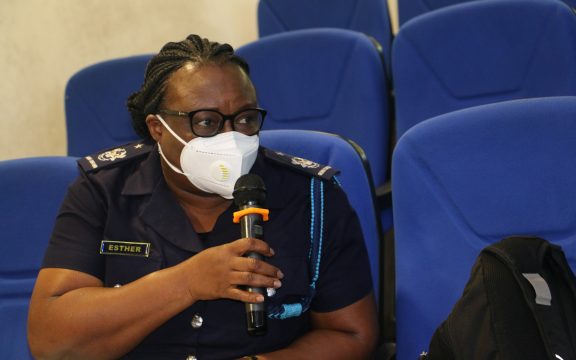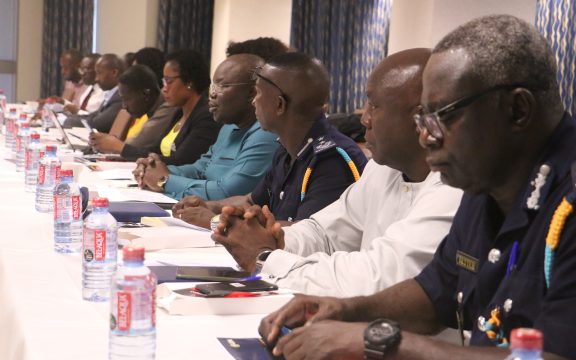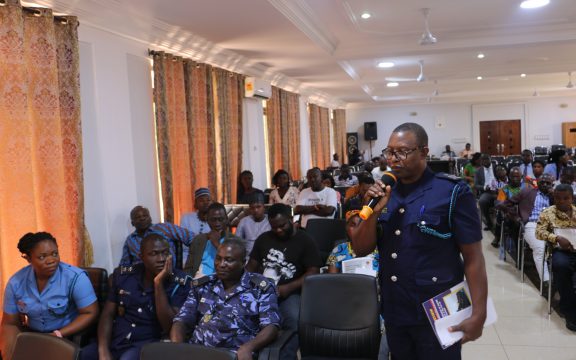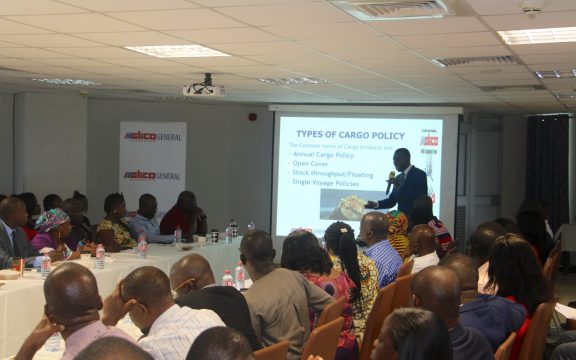INTRODUCTION
Risk and uncertainty are the two most fundamental facts of life. We all know that the one event which is certain about our lives on this planet is that one day, we will die, but the actual date, time and circumstances of our death remain in the realms of uncertainty. Apart from the certainty of ultimate death, which most of us prefer not to contemplate, everything else about our lives and the future remain uncertain.
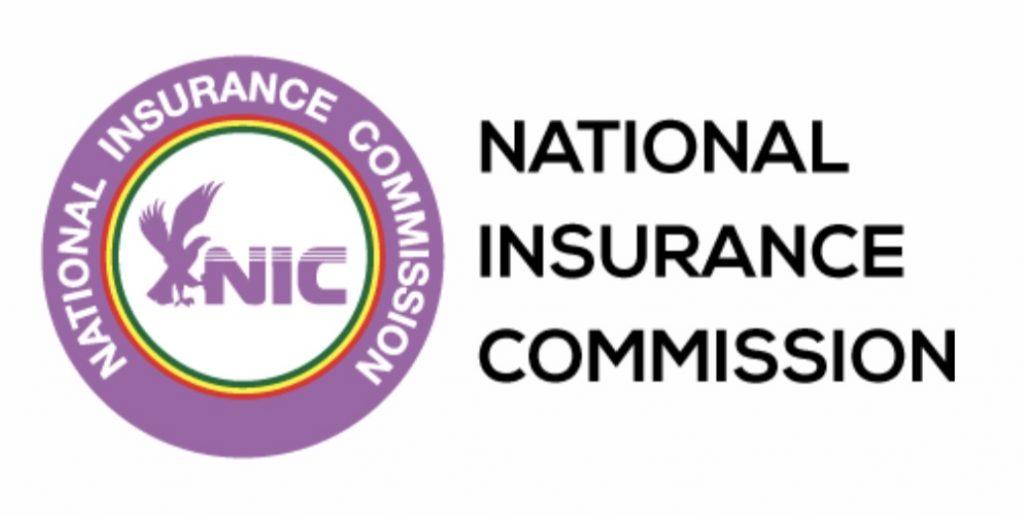
Having recognized this element of risk and uncertainty as inevitable features of our lives, humans as intelligent, rational and creative beings device methods to combat and respond to the possible adverse circumstances. Insurance is one of the most important of these responses to risk and uncertainty. The basic role of insurance in the economic and social structure of society as a risk management tool is to provide relief from the financial consequences of this element of uncertainty.
Its principles have been refined and applied over time to protect individuals and corporate bodies against financial losses resulting from loss or damage to their properties or other business assets, as well as against financial losses resulting from death or injury in the case of life and accident insurances.
INSURANCE
The traditional legal definition of insurance describes it as a contract whereby one party, the insurer, undertakes, in return for a consideration, (the premium) to pay the other, the insured or assured, a sum of money in the event of the happening of one or various specified uncertain events.
The transportation of goods by ship has been described as a “maritime adventure” that promotes three main interests. The first is an interest in the ship, which is the vehicle used to transport goods from one location to another. The second is an interest in the cargo, or the goods being transported, which is the primary reason for the entire adventure. The freight or remuneration due to the ship for the service it renders in transporting the cargo is the third interest that is being promoted.1
The freight is the consideration for which the ship’s owner, or charterer in the case of a ship under charter, agrees to expose his property and the lives of the crew to the hazards of the sea. Under normal circumstances, it would be expected that any damage or loss suffered by any of the various interests during the course of the adventure would be borne by that interest, unless the damage or loss was caused by the fault of any of the others or unless there is a specific stipulation to the contrary in the carriage contract. In other words, any damage to a specific interest will be located where it has fallen.

Insurance is obtained directly from a registered insurance company or through the intermediary of an insurance agent or broker. As consideration for the insurance protection given by the insurer, the insured is required to pay an agreed premium, which depends on the extent of the risk induced into the insurance programme by the insured or policyholder.
From the foregoing, it is evident that the insurance industry exists primarily for the purpose of providing protection against financial losses arising from unexpected events. In addition to this primary function of insurance protection, the insurance industry today provides several other secondary services to the policyholder and the wider society in such areas as risk management and loss prevention advice, inspection of plants and buildings, and the promotion of savings and investments. Notwithstanding these additional functions, the primary function of insurance remains the provision of insurance cover against the financial consequences of uncertainty or the provision of financial security to the insured or policyholder.
The business of insurance is imperative to the progress of any economy. A high insurance penetration shows that people understand the levels of risk they face and have put in place mechanisms to reduce the effect of the risk should it occur. From the early 20th century, insurance has been commonly practiced in developed countries, but the case is different for emerging and developing countries like Ghana. Specifically, relating to marine insurance; it is one of the oldest forms of insurance practices in most developed countries where imports have been consistently less than exports. With most of our consumption from imports, marine insurance should have increased significantly.

For example, in 2017, the value of imports was GH¢60.30 billion and this increased to GH¢62.42 billion in 2018, suggesting that there is a huge potential for marine insurance. The percentages of marine insurance premium to total premium in 2017 and 2018 were 3.86% and 2.39% attesting to the fact that, marine insurance contribution to total insurance premium remains very low. The contribution of marine insurance premium to total insurance premium was also very low; hovering around GH¢94.31 million in 2017 and decreased to GH¢70.33 million in 2018 whiles total premium was GH¢2.44 billion in 2017 and GH¢2.94 billion in 2018 respectively.2
MARINE INSURANCE
The term marine insurance refers to the insurance of vessels, cargoes; shipowner’s, ship repairer’s, and other marine liabilities, and of the various other moveable property and associated interests exposed to the risks incidental to marine transport.3 It protects the insured against damage, loss, and liability arising from exposure of a vessel, goods, or any moveable property to maritime perils: meaning the perils consequent on, or incidental to, navigation at sea. A contract of marine insurance may cover mixed sea and land, or inland water risks.4
In a wider sense, the term marine insurance may also refer to all types of insurance of transport risks, including transport by rail, road, inland waterways, and air. Modern transport insurance originally developed from marine insurance and is based on very similar rules and principles. Nowadays, in the era of multimodal transport, the general tendency in cargo insurance is that the application of marine insurance rules is frequently extended to insurance against losses on inland waters or against any land risks. This is done based on express contract terms, applicable national laws, or by the usage of the trade.
An example of a legal definition of a contract of marine insurance can be found in section 1 of the UK Marine Insurance Act 1906 (MIA 1906) which provides: ‘A contract of marine insurance is a contract whereby the insurer undertakes to indemnify the assured, in manner and to the extent thereby agreed, against marine losses, that is to say, the losses incident to marine adventure.

Ghana Insurance Act 2006 (Act 724)
Ghana’s Insurance Act, Act 724, states in Section 37 that “unless authorized by the Commission, a person shall not enter into a contract of insurance with an offshore insurer in respect of (a) property situate in the country, (b) liabilities arising in the country or (c) goods, other than personal effects, being imported into the country”. This law is clearly aimed at making sure all imported goods are insured locally. The law is intended to protect the Ghanaian importer, although in most cases their exporters cover their goods with offshore insurers.
The Nation Insurance Commission (NIC) and Ghana Revenue Authority (GRA) Customs Division signed a Marine Cargo Insurance Protocol on 23rd December 2020 to facilitate a smooth implementation of section 37 of the Insurance Act 2006 (Act 724) as amended by section 222 of Act 1061 .
The purpose of the engagement was to explain the need to take local Insurance for imported goods other than personal effects. Local importers have over the years bowed to terms of foreign insurance companies including paying premium in US dollars. This has seen the country empty its foreign exchange coffers to meet the need. There is therefore a need to alter the narrative to secure this premium paid to external insurance companies for the growth of our local insurance companies and ultimately the economic growth for our country.
Section 222 (1) states in effect that; a person who imports goods, other than personal effects, into the country shall insure the goods with an insurer licensed under Insurance Act, 2021. Section 221(1) (c) of the Insurance Act 2021, (Act 1061) states:
“A person shall not, unless authorized by the Commission, enter into a contract of insurance with an insurance company not licensed under this Act in respect of (c) goods other than personal effects being imported into the country”.
Section 3 of the Marine Insurance Act, 1963 defines Marine Insurance as “A contract of marine insurance is an agreement whereby the insurer undertakes to indemnify the assured, in the manner and to the extent thereby agreed, against marine losses, that is to say, the losses incidental to marine adventure”.
This covers the loss of ship or the vessel as well as the goods or cargos which are being transported by land, road, air, or water.
It is important to state that, most of the foreign insurances do not provide inland protection for imported goods. Once the goods get to the port, there is no insurance cover and therefore importers need to ensure that, their goods are transported to the warehouse bearing all the risk. In some cases, the importers need to buy a different policy to get such cover.
Similarly, for inland insurance to be covered, the importer must buy an additional policy to ensure the safety of the goods. The issue with the current insurance arrangement is that most of the importers do not know the offshore insurers and there is a clear limitation in terms of language and communication. There is difficulty in filing for claims if there is an eventuality and, in most cases, importers do not know the extent of coverage, making it difficult for importers to get the desired results from the filing of claims. In some cases, these difficulties come in the form of underwriting and policy wording and the fact that marine insurance is very technical.
These pose a challenge for importers with respect to understanding the terms of the policy. The marketing of marine insurance is progressive, but the actual uptake of marine insurance has been very low in Ghana, and it is important to examine the challenges local insurers face in the marketing and sale of insurance to importers.
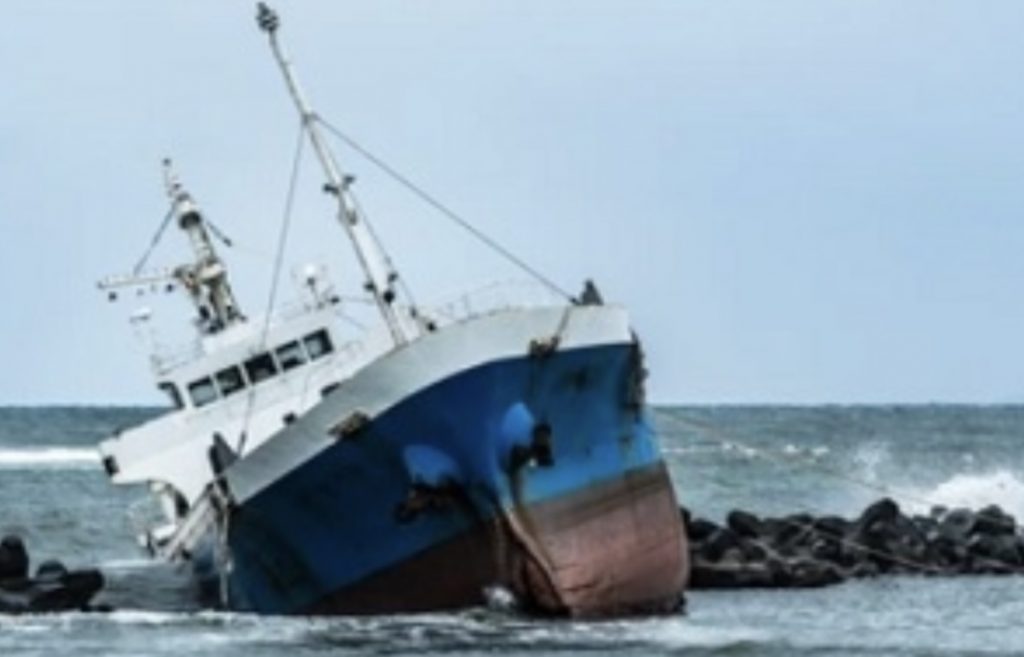
Cargo Insurance
The word cargo refers to goods and merchandise in transit by sea, road, rail, or air. While in transit, there is a risk of the goods (raw materials, finished goods, equipment, wares) being damaged and thus the need for marine cargo insurance to indemnify the shipper against the financial loss that may be caused should there be damage to the cargo. The risks include:
- Inland Transport by country craft
- Import and export of goods by the ocean through all types of vessels
- Consignments by air, rail, or road
- Goods sent by post
Trans shipments
The coverage provided under this policy is defined by the Institute of London Underwriters and are standardized in the international market into three clauses which are:
- Clause A: All Risk Institute Cargo
- Clause B: Basic Cover Institute Cargo
- Clause C: Fire and Lightening Institute Cargo, which covers loss or damage caused by war, strikes, riots, capture, fire, storms, earthquake, accident, lightening and any other which is specified in the policy.
Marine Insurance Regulation
Section 221 of the Insurance Act 2021, (Act 1061) states that, “A person shall not, unless authorized by the Commission, enter into a contract of insurance with an insurance company not licensed under this Act in respect of
a) a property situate in the country
b) liability arising in the country; or
c) goods other than personal effects being imported into the country”.
What is the Process for Taking Local Insurance for Imported Cargo?
To obtain local insurance for cargo that is being imported into the country, the insurance company must be given the specifics of the Bill of Lading or the Invoice for the goods that will be brought in. These documents describe the type and nature of the goods as well as their value:
- The cost of goods
- Nature of packaging
- The country of importation
- Transhipment (if any)
- Port of arrival
- The vessel and the flag (if any)
The cost of freight
The NIC has developed a Marine and Aviation Insurance Database (MAID) to assist with the compliance with sections 221 (1) (c) and 222 of the Insurance Act 2021, (Act 1061) to ensure that that the cargo importers insure with the local insurers that are regulated by the Commission.
Measures in Place to Facilitate the Uptake of Cargo Insurance Locally
The NIC has ensured regular publication of the names of Insurance Companies in good standing on their webpage www.nicgh.org and also made it available to Media houses. Some of the other measures that are being put in place are:
- Digitizing the issuance of Certificates of Marine Cargo Insurance for efficiency and confidence
- Awareness creation among the investing public on the protection offered by local insurance cover versus overseas insurance in relation to their investments.
- Enhancing the claims process through the publication of a Marine Cargo Insurance Claim Guidelines (currently, Marine claims are governed by the General Insurance Claims Guidelines which cover all claims). A separate Claim Guidelines is being worked on for Marine Cargo Insurance.
- Procedures concerning claims administration, premium payments, and ratings shall be subject to NIC directives.5
Benefits of Local Marine Insurance
There are numerous benefits a shipper could derive from taking marine insurance locally. They include the following:
- Peace of mind with guaranteed protection of investment and business continuity.
- Value for money – adequacy of cover, access to professional advice, no language or geographical barrier, efficient claims service, and access to regulator’s intervention, among others
- Confidence to the insurer
- Addresses issues about quick claim settlement
- Easy access to insurance
- Local market backed by good regulatory framework.
- Competitive pricing
- Every credit facility given to an importer will have local Cargo Insurance Cover with the Bank of Ghana’s interest noted on the certificate.
- Growth with significant premium income for the insurance industry of Ghana.
Documentation Required for Local Marine Insurance
The following supporting documents are normally required by the insurance companies for local Marine insurance:
- Original policy or certificate of insurance
- Original commercial /supplier’s invoice
- Original bill of lading or other contracts of carriage
- Packing list
- Ghana Ports and Harbours delivery tally sheet or Harbour Waybill
- Letter of intent to carriers or responsible parties
- Landing account and weight notes at destination
- Statement of claim
- Customs Bill of Entry
- Loss Adjuster’s Report
Conclusion
Primarily, Ghanaian importers use major international commercial terms for sale/purchase of goods for exports, where importers freely enter into agreements with offshore or local insurers that they desire. There is a clear limitation and difficulty in filing for claims when eventualities occur, and, in most cases, importers do not even know the extent of coverage they have, making it difficult for them to get the desired results from the filing of claims.
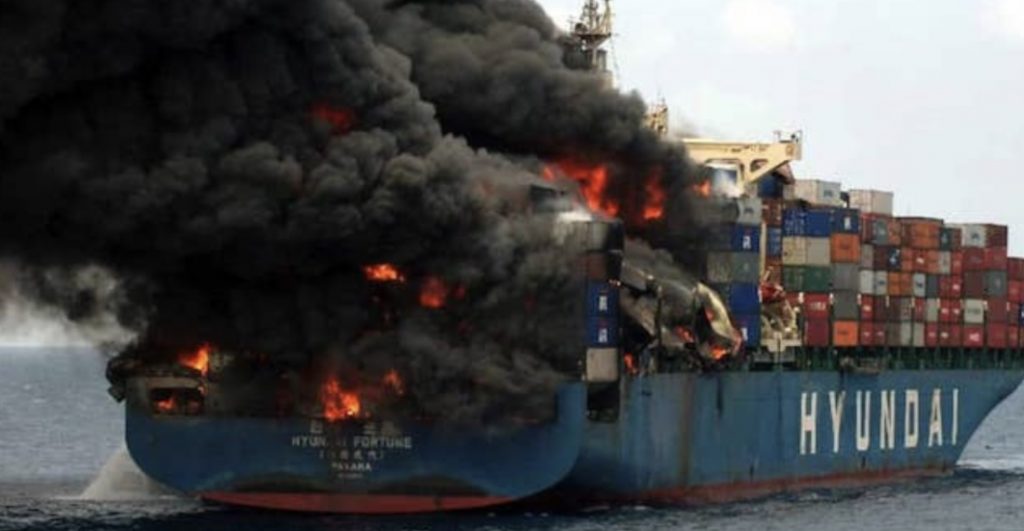
The goal of the Insurance Act, Act 724 as amended by Act 1061 (2021), is to safeguard the interest of Ghanaian importers. Consequently, the policy to promote local marine insurance will help in the resolution of such difficulties that manifest in the form of underwriting, policy wording and the technical aspect of dealing with offshore insurers and should be embraced by all stakeholders.



